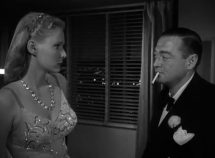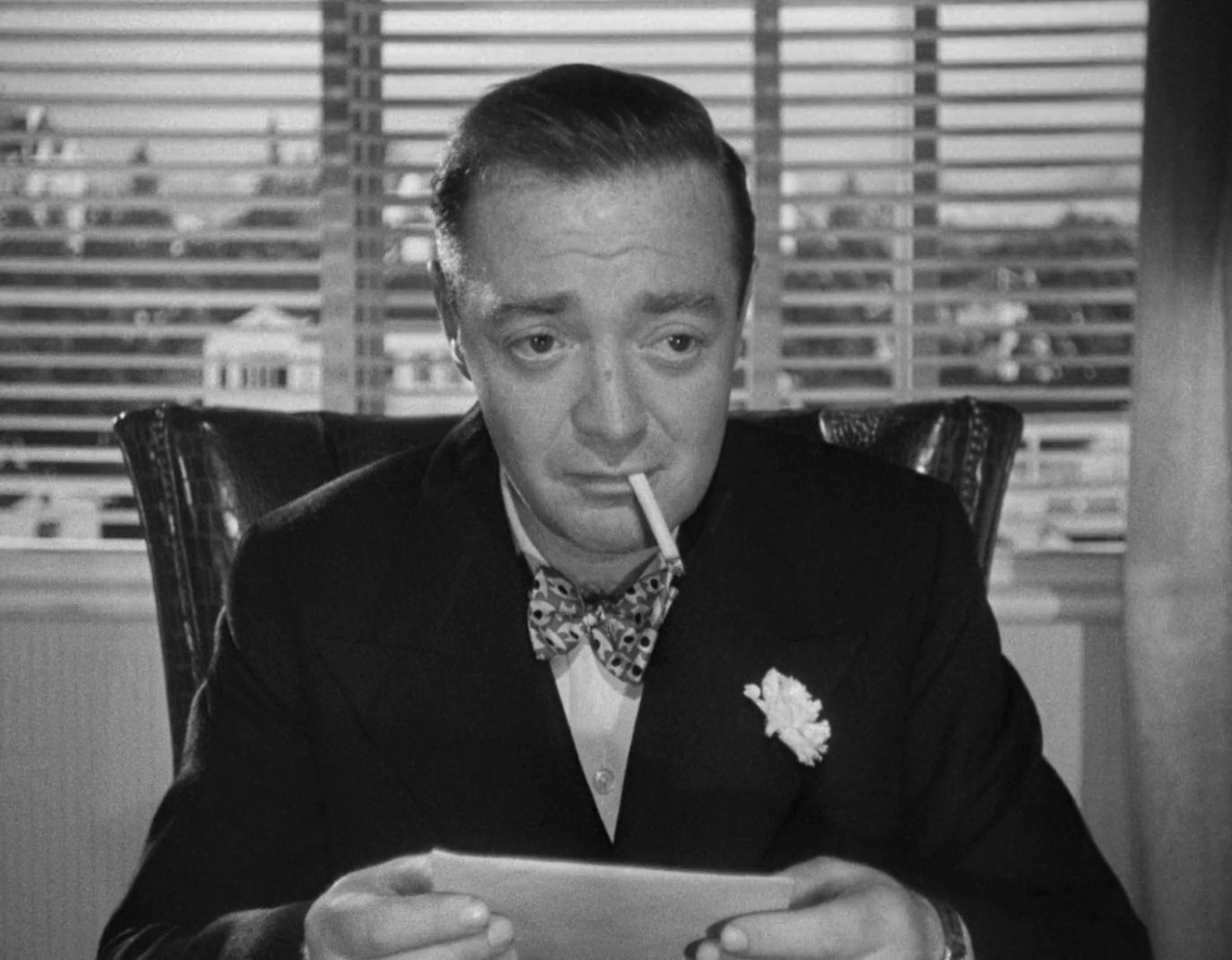Black Angel

(Directed by Roy William Neill)(1946)
This obscure Universal film noir is rather odd in an intriguing, almost surreal way. A blackmailer, Mavis Marlowe (Constance Dowling), ex-wife of part-time pianist/composer and full-time drunk, Martin Blair (Dan Duryea), turns up strangled in her apartment, one of Blair’s songs reverberating on the record player. Blair was on the spot earlier but the Doorman, under instructions, told him to go jump, whereupon he went on a bender of epic proportions. Meanwhile, Kirk Bennett, a poor sap who’s been having an affair with Mavis, visits, but finds her dead and busily incriminates himself by leaving dabs all about and being seen while scarpering down the stairs. He is duly charged by low-key, low energy detective, Captain Flood (Broderick Crawford), tried, convicted, and sent off to the Big Chair.
Enter Mrs. Catherine Bennett (June Vincent). She is sure Kirk is innocent, and sets about trying to obtain some exculpatory evidence. Finding unlikely help from newly widowed Blair, the two conclude that another man visited Mavis on the fateful night: shady nightclub owner Mr. Marko (Peter Lorre). Blair recalls seeing him take the elevator while the doorman was showing Blair the door, and after all, it is Peter Lorre, the whispering menace. Tolerating Blair’s piano-playing and seduced by Catherine’s alleged torch-song talent, Marko hires them, conveniently allowing them to loiter between sets, hoping to gain access to Marko’s private office and safe. This they do, but complications arise: Blair’s declaration of love for Catherine is slapped away; she goes to see Kirk before he takes the juice; Blair hits the bars, and Peter goes sadly back to the Rio Club to smoke another hundred cigarettes and listen to Shostakovich records.
“Why do you drink?” “To forget.” “Forget what?” “I forget.”
Eventually, all is revealed; the denouement is rather unusual. The film is clearly a ‘B’, Duryea and Lorre the only big names in the cast (Broderick Crawford would not be a leading man until All the King’s Men 3 years later). Duryea’s performance is patchy but he does rather well as the drunk who tends to fall head-over-heels at the drop of his hat (let’s not talk about his piano “playing” however); June Vincent, inexperienced and uncertain, tries her best, sings some silly tunes better than Claire Trevor, and is likeable enough in a role more apt for, say, Gene Tierney or Lauren Bacall. In The Lost One, she recalls that Lorre helped her a lot with tricky scenes, giving a lie to an oft-made suggestion that he phoned-in his lesser roles. He might not be at his peak here, but Lorre infuses Black Angel with style and real menace. He’s too good for the film, but his sad eyes and insinuating manner has – as usual – the viewer on the edge of the seat.

“So it goes…another shady little character…”
David Shipman wrote in “The Great Movie Stars” that Lorre on screen “was a man resigned to the follies of others, clasping to himself his own fastidiousness like a fetish.” He left a giant mark on film and became a symbol that endures in the pallid homages and appropriations which Hollywood re-vamp in the ever-lasting present, as film steadily degenerates into a fading and failing art form.

“Hands off the piano.”
Leave a comment...
While your email address is required to post a comment, it will NOT be published.


0 Comments